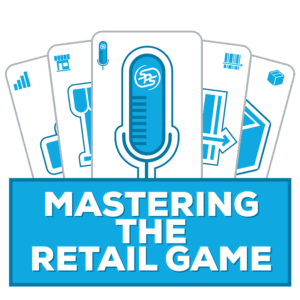How good is your 3PL knowledge and expertise?
With more than 16,000 3PLs to choose from as part of $1.3 trillion (yes, a “T”) industry, what criteria does a supplier use to evaluate this choice?
How do they know the service provider is good at what they say they do? What could the logistics company provide to demonstrate they not only understand the retail customer’s requirements but well and efficient?
When a supplier outsources this piece of their organization, the 3PL becomes the operational face of their business to the buying organization.
In a space dominated by commoditized services and wafer-thin margins, 3PLs face tremendous pressure to meet the business requirements of the supplier as well as the technical requirements of the retailer.
So how does a supplier know when a 3PL is “good”?
This post is the first of a three-part series designed to help suppliers begin to answer these questions. Today’s post will focus on Knowledge and Expertise. Future posts will address Capacity and Capabilities, and Systems and Technology.
As consumer buying behavior changes, the supply chain becomes more complex and the retail sector pushes more and more requirements upstream and downstream.
Since logistics organizations can’t be good at everything (though we like to think we can), many 3PL’s choose to specialize in a particular vertical, a specific region, or even retailer relationships because they know the requirements inside-and-out. That’s their value prop.
It’s important for suppliers to understand WHAT the 3PL’s knows and WHERE their expertise lies. Suppliers rely on and leverage this knowledge and expertise to grow their business.
Growth in E-commerce means creating Branded Packing Slips and reverse logistics
In an effort to increase turn, retailers want shipments packed by-store and marked-for DC. This means cross-dock ASN’s, UCC-128 labels, pallet configurations, shipping compliance for EACH retailer…the list goes on and on for suppliers and 3PLs.
To demonstrate their ability to handle the complexity and breadth of requirements, logistics companies can provide several proof-points:
- Referenceable customers
- Current scorecards and metrics
- Facility tours
While there’s other evidence of how well the logistics company knows and executes against the requirements, referenceable customers provide peace-of-mind, publishable metrics (i.e. on-time delivery % perhaps validated by the retailer through a customer) mean they manage the business, and a tour offers first-hand visibility to the organization.
Good 3PLs confident in their services readily offer these up to companies who want to do business. To get more relevant updates like this, follow SPS Commerce on Facebook, LinkedIn, and Twitter or contact a sales representative here.

Mastering the Retail Game
Explore the new rules of retail and get real-world advice on how to win by learning from retail experts and peers in the industry.
LISTEN TO THE PODCAST- Save big money with order automation - January 17, 2025
- A collaborative approach to supplier performance management - November 7, 2024
- How to nail your next buyer meeting: A supplier’s guide - August 29, 2024

RELATED POSTS
TMS and beyond: Why carriers are inte...
3 impacts to streamlined shipper onbo...
4 impacts from streamlining load tend...